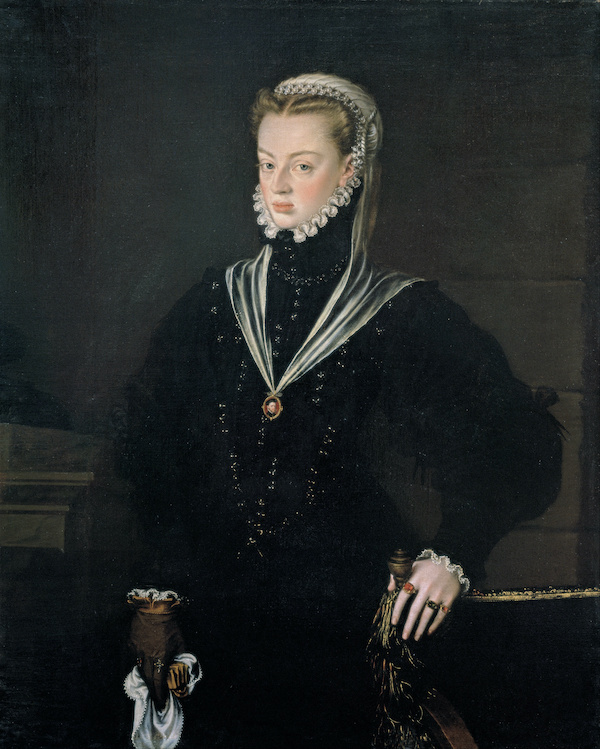
FORDHAM — It’s one thing to be the first of many and quite another thing to be the first and only. Such is the case of Joanna of Austria.
You might not have heard of Joanna of Austria (1535-1573), the first — and so far only — female ever admitted to the all-male Society of Jesus in the religious order’s 483-year history. Alas, she could not be described as a trailblazer — because no one ever followed in her wake.
One reason for that is her entry into the Jesuits took place under secretive circumstances around the year 1555 when she was 20 years old. In fact, in order to conceal the fact that a female was gaining entry to their order, the Jesuits gave her a pseudonym: Mateo Sanchez.
But while her name isn’t well known today, she should be celebrated, said Tania Tetlow, president of Fordham University, a Jesuit school.
“It’s important to capture all these parts of our story — the ways that women have been fundamental to the Church from the beginning and throughout history,” said Tetlow, herself a first — the first female president in the university’s history.
Just who was Joanna of Austria?
She was a Catholic, born into royalty, and held many titles during her lifetime, including the archduchess of Austria, princess of Portugal, and princess of Burgundy.
She was a powerful figure. For a time, she served as regent of Spain, ruling that nation from 1554 to 1559. At that time, her brother, Philip II, who was the king of Spain, had married Mary Tudor of England and was living there.
Joanna of Austria was a frequent correspondent of St. Ignatius Loyola, the man who founded the Society of Jesus in 1540, and she often championed the religious order’s good works and defended its members against critics.
She also corresponded regularly with St. Francis Borgia, a Jesuit priest who frequented the court of Spain and whom she considered a spiritual mentor.
But it was her iron will and her privileged position in life that paved the way for her to become a Jesuit, according to historians.
Rather than politely request admission, she used her power and influence to compel the Society of Jesus into making her a member. Up to that point, the Jesuits had never welcomed a woman into the order, and members worried what might happen if it were found out about Joanna of Austria’s status among them.
Still, she remained a Jesuit for the rest of her life.
Joanna of Austria provides an early and important link between the Jesuits and laypeople, Tetlow noted.
“She has a fascinating history, and it connects to the ways that Ignatius wrote the Spiritual Exercises — as a layperson for laypeople. And so the engagement of the Jesuits with laypeople has been there from the very beginning,” said Tetlow, who in addition to being the first female, is also the first layperson to serve as Fordham University’s president.
Once she gained admission into the Society of Jesus, she worked to help those in need by supervising projects aimed at improving the lives of poor people and donating money to Jesuit schools in Rome.
She also established the Convent of Las Descalzas Reales in Madrid in 1557 and spent the last few months of her life there. She died of cancer in 1573.
“There are so many stories of women who made extraordinary contributions to the world and are buried,” Tetlow noted in repeating her call for Joanna of Austria to be more widely known.
“And so that work of resurrecting a fuller look at our history is important. We must really understand the role that women have played not only as supporters but as primary figures in history.”
